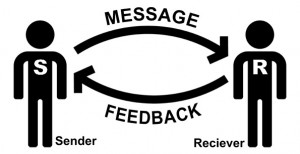Workout Objective: Find out how closely your interpersonal communication style match what is expected
Communication skills
Interpersonal Communication Quiz – 25 Detailed Answers
Workout Objective: Understand why the recommended quiz answers result in the most effective communication style for US business culture.
Interpersonal Communication Skills – 5 Tips
I went to the dentist (Dr Sood) today and it was a great experience. You may ask “what does this has to do with interpersonal communication skills or my career?” Well, you will see after I tell this story. As you may remember, I wrote about interpersonal skills examples last July after my last visit to the same dental office. That time, my experience was terrible. A different dentist (Dr. Vo) saw me at the same office. Dr Vo probably graduated from the top of her class and everything she told me was probably true. However, it was the way she interacted with me that made it such a bad experience. As such, Dr. Vo lost my business forever. ...
How to Say No at Work
It may be hard to think about saying no at work, but sometimes it’s necessary to do so to protect your reputation as well as manage your stress level. This 20 minutes podcast is a live coaching discussion with me regarding why, when, and how to say no at work. There are definitely legitimate reasons and appropriate times to say no. As you will learn, it is beneficial to you and the company to practice how to say no at work. ...
7 Steps to Effective Interpersonal Communication
Anyone can master interpersonal communication. There are few people who are naturally good at it. For most people, it takes conscious effort and practice to master this skill. Here are 7 steps to achieve effective interpersonal communication at work — today!
- Start with self awareness – Do you know how well you communicate right now? What works and what doesn’t? If you don’t know, gather feedback so you can know your strengths and weaknesses. Use the rest of this list to help with your self-assessment.
- Always keep the other person in mind– For any instance of interpersonal communication, plan out your approach ahead of time. Start with the other person in mind — Try your best to put yourself in their shoes and figure out what might be their mindset, sensitivities, and how they may receive your words. Effective interpersonal communication can only happen if you understand where the other person may stand.
- Determine your desired “win-win” outcome: The outcome of any conversation must be a “win-win,” as not all outcomes you desire are good for the relationship. For example, you may want to prove that you are right, but that would mean the other person needs to be proven wrong. You may win the argument, but lose the relationship. That’s not a good outcome.
- Gather the facts: While facts can’t be the only focus of your conversation, you need the facts to keep the discussion as unbiased as possible. It’s hard to resolve anything if all you have is “he said she said.”
- Practice a calm approach/tone: This will require the most time, especially if you are emotional about the situation. You need to calm down first, and then communicate with an open tone. This requires time, since our instinctive reaction is to take a defensive or offensive tone. An open tone can be one that gives the benefit of the doubt, or focuses on “we” instead of “you vs. me.” Your openness and calmness will invite the other people to listen, and your tone will show that you are there to build the relationship.
- Listen as much as you speak: Effective interpersonal communication is a two way street. You should spend 50% of the conversation listening. We are sometimes prepared so much that all we focus on is talking. You can lose the listener quickly that way. Pause after a few sentences so the other party can respond. That way you can adapt your communication based on how they react. Sometimes it takes fewer words than you think to achieve the “win-win” outcome.
- Don’t expect anything: We cannot control or change anyone else. This is an easy concept that is easy to forget. After all this work we put into structuring an interpersonal communication, there is no guarantee about how the other person will react. Everyone is responsible for their own actions. All you can do is play your part the best you can, accept whatever you get, and adapt your actions from there.
...
What is Interpersonal Communication – Definition and 3 Myths
Effective interpersonal communication at work is essential to your career success. Yet it’s often not clearly understood nor easy to improve. After researching on Google regarding how others discuss interpersonal communication, I will offer my own perspective – a detailed definition of what is interpersonal communication and 3 most common myths about interpersonal communication. ...
Examples – Interpersonal Skills are More Important than Hard Skills
Have you ever wondered why having the best answer to a business problem sometimes makes no impact at all? In school, we were always incentivized to give the best answer – the best answer leads to good grades, which lead to job offers. So, naturally I brought that mentality to work. I would work tirelessly to get the perfect, best answer, but was often disappointed when nobody seemed to interested in hearing it. ...





